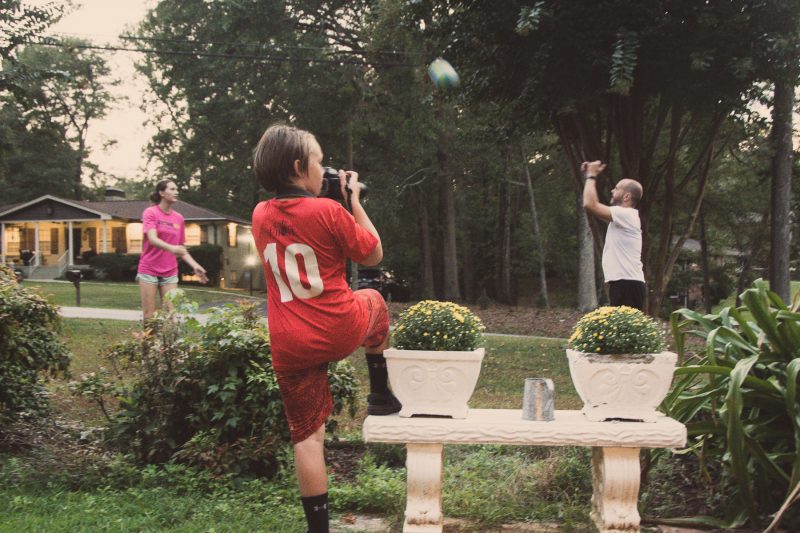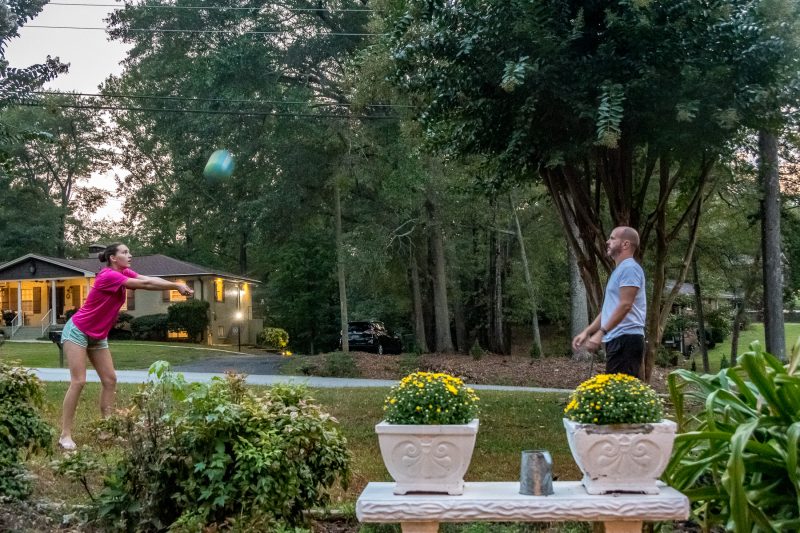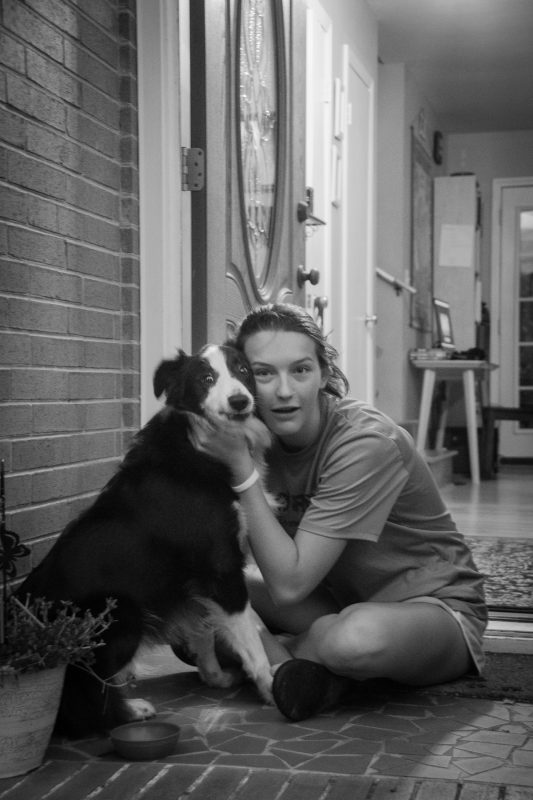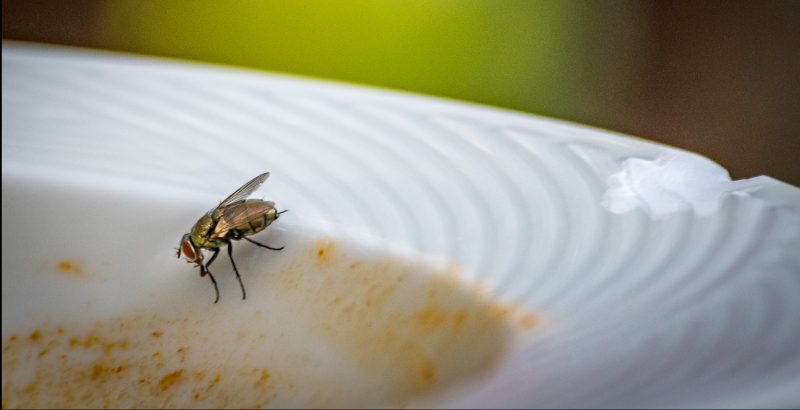After desert, when K pretended she was about to eat E’s while he ran inside for a moment, we went to the front yard to get a little family exercise. L, having stayed home today because of sinus issues, passed the volleyball to me. Later, the Boy and I worked on his defensive skills in soccer.

As the Girl and I played, I noticed that, over her shoulder, the waxing moon was almost a half-moon. A waxing moon in the autumn was always a harbinger of the greatest week of the year, hands down, year after year. It was in the fall that our heterodox sect took a week off of work and school to celebrate the Feast of Tabernacles in a strange attempt to follow the pattern of Old Testament holy days that we were taught were still required.

When I was L’s age, the sight of such a moon in September would edge me toward near-giddiness as I thought about all the adventures that awaited after the obligatory, daily, and often boring church service (yes, daily church — a two-hour service, no less, with a sermon that lasted anywhere from sixty to ninety ass- and mind-numbing minutes). Surely I’d meet new friends. Maybe we’d see some great attractions. But most enticing was the promise of what everyone called a feast-fling: a week-long adolescent romance that ended with addresses and phone numbers exchanged along with promises and more promises, a romance that was lucky to reach Christmas break. “Maybe we’ll go to the same feast site next year!” was the excitement.

It never worked, of course, because adolescent romances are just that — flings. But that excitement along with the excitement of all the other amazing experiences we’d certainly have hung in the glow around waxing autumnal moons.
My children know none of these things. The specifics of my religious upbringing are a complete mystery to them. I’m content to let them assume what they will. I’ve hesitated to tell them anything about it because it doesn’t seem all that relevant to their lives, and quite honestly, I didn’t want to shade how they saw Nana and Papa. That of course assumes that it would color how they see them, which is likely a projection: through almost all of my adult life, I have looked at the beliefs they inculcated into me, beliefs they held with complete conviction but were without a shred of logic even within a strictly Christian theological context, and wondered how in the world they could have fallen for such silliness. I know they came to view their own beliefs similarly, returning eventually to a more orthodox Protestant faith, but somehow I still hesitated.

“I hesitated,” I say as if it’s something that’s occupied a large part of my conscious thoughts. In truth, it has, but only in a theoretical, theological sense. My thoughts have only turned to that theology while mowing or having a cigar and scotch on a Saturday night. Unless I happen to see a waxing autumnal moon…
